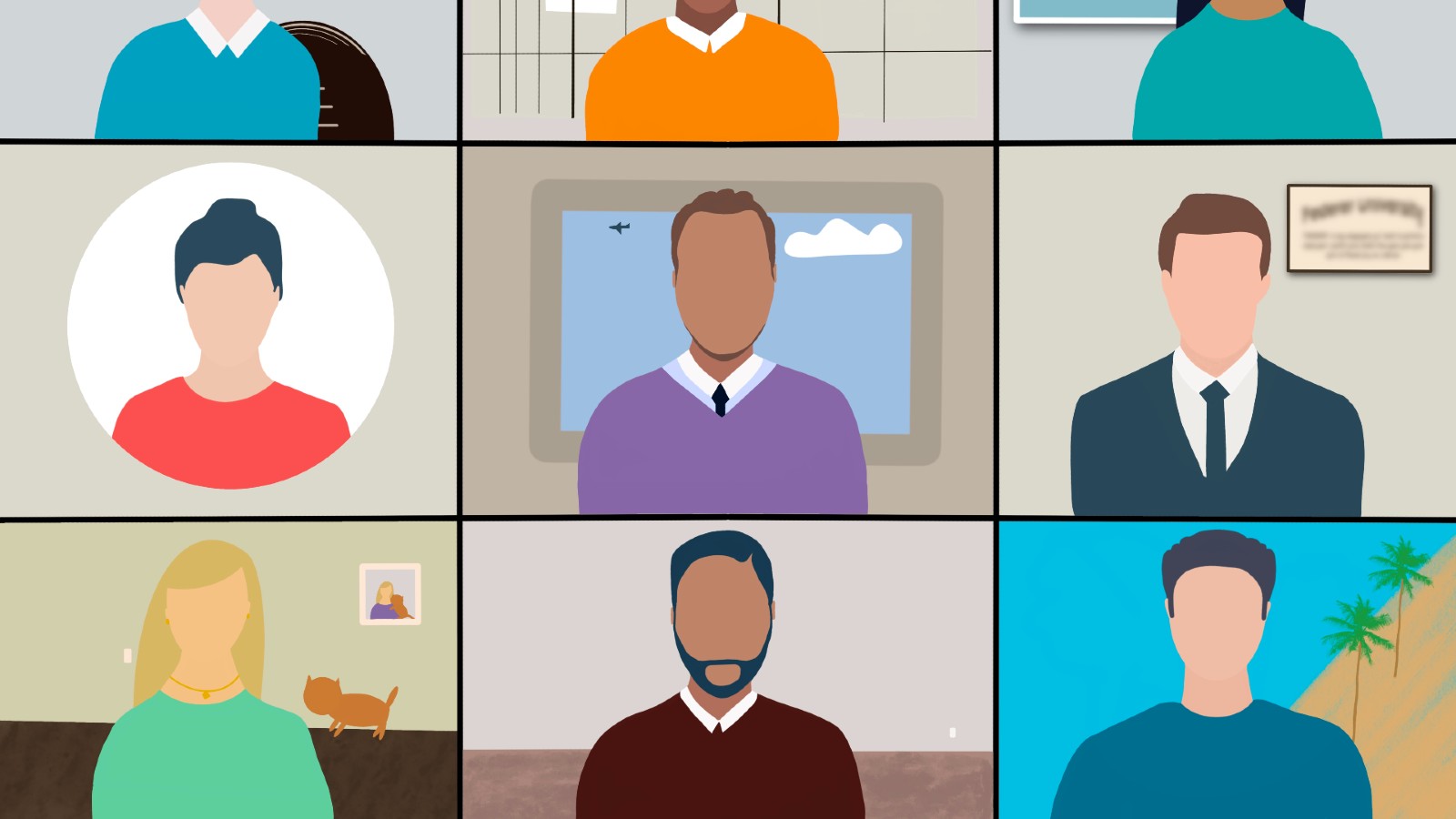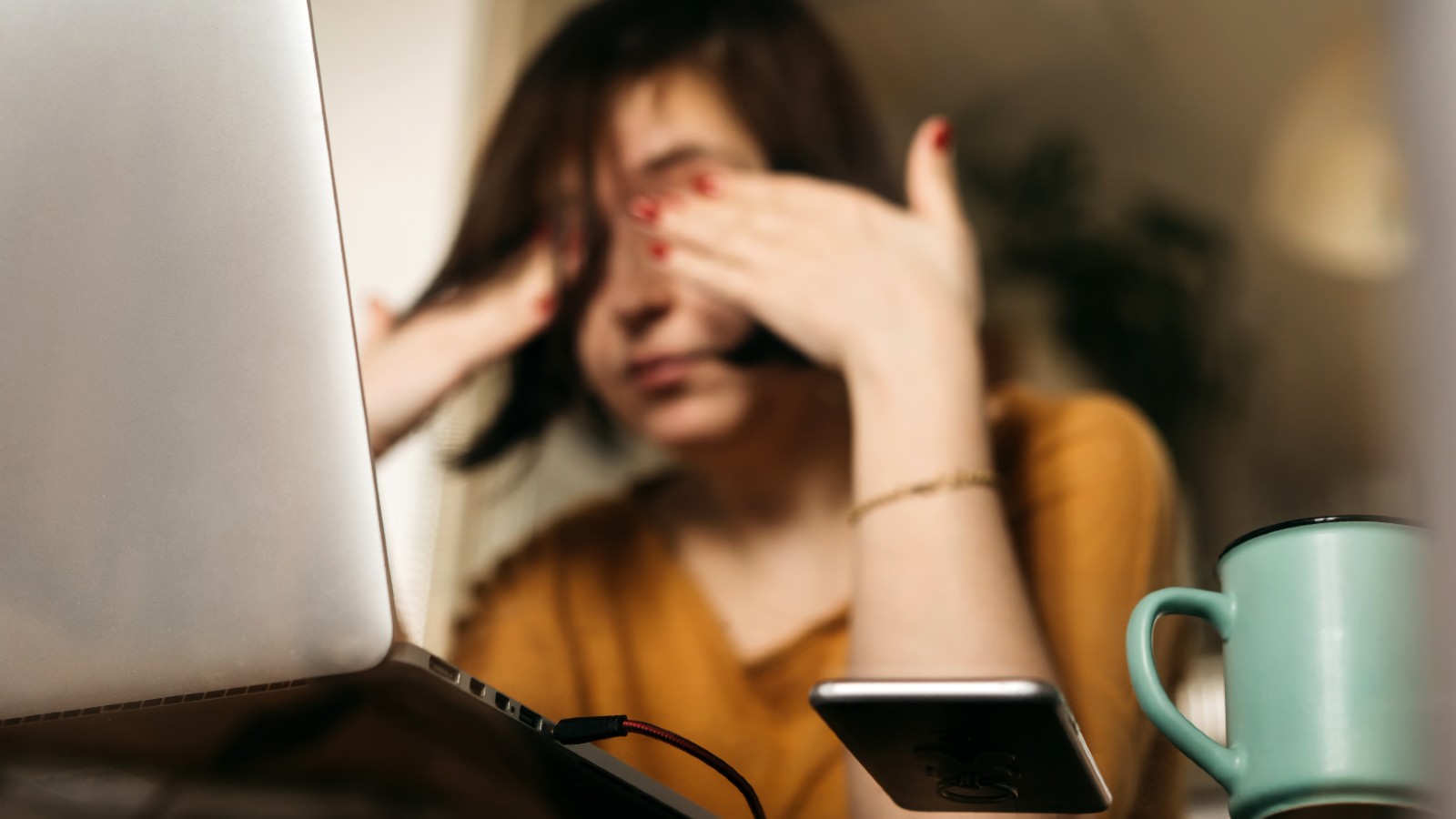What is "Zoom fatigue" and how do we prevent it?
If Zoom makes you sleepy, you’re not the only one. Zoom fatigue is real!


Thanks to the pandemic, our social and working lives have been turned upside down. We’re now spending hours glued to our computer screens, with Zoom and other video conferencing platforms being the only real way to talk to anyone face to face. Lockdown rage is now officially a thing, and unrelenting Zoom calls have left many of us feeling fatigued.
- 14 things to do in lockdown: how to keep yourself entertained during lockdown
If you find yourself barely able to stifle a yawn in your Zoom meeting, even if it is actually mildly interesting, there is a reason—four reasons in fact.
What are the causes of "Zoom fatigue"?
A study conducted by Stanford University professor Jeremy Bailenson, entitled Nonverbal Overload: A Theoretical Argument for the Causes of Zoom Fatigue, found that there are four main causes of the so-called "Zoom fatigue."
Close-up eye contact is the main one. Normally, we would not be that close to someone else’s face, other than a partner or friend. Zoom creates intense eye contact, which can make you feel really tired.

Another key cause of tiredness is seeing yourself on screen. You’re focusing on how you look, who you’re talking to, and over-analyzing your movements all at the same time. So your eyes and brain are working harder than they would if you were having a normal conversation.
Professor Bailenson said to BBC Radio 4: “Decades of psychology research shows that when you’re looking at yourself we scrutinize ourselves, we evaluate ourselves, and this over time causes stress and negative emotions.”
Being sat still in your Zoom meeting is the third cause. In your normal everyday life you wouldn’t sit like a statue—you’d stretch and get up and move.
The final cause is your brain working harder to send and receive signals. Communicating your points and feeling over video s is harder, as is trying to understand the signals the other person is trying to send.

- How to network from home: 9 ways to give your career a social boost
All of these things make you feel fatigued because your eyes and mind are effectively on overdrive. You’re concentrating on looking like you’re paying attention, actually paying attention, and then also communicating your own points.
Bailenson says that Zoom causes a "hyper-aroused state," which is normally caused by being really close to someone else’s face. We usually only feel this when we’re in a romantic situation or a conflict.
How to minimize the effects of Zoom fatigue
There are some things you can do to lessen the feelings of "Zoom fatigue." The first thing you can do is minimize your chat window and move yourself slightly further away, so you’re not looking at the other person so intensely.
You can also hide your own screen from view so you can’t look at yourself and over- think about what you’re doing. Also, turning your camera off completely if you can, so that you can stretch and move, will help a lot.

Naomi is a Lifestyle News Writer with the Women's Lifestyle team, where she covers everything from entertainment to fashion and beauty, as well as TikTok trends for Woman&Home, after previously writing for My Imperfect Life and GoodTo. Interestingly though, Naomi actually has a background in design, having studied illustration at Plymouth University but lept into the media world in 2020, after always having a passion for writing and earned her Gold Standard diploma in Journalism with the NCTJ.
Before working for Future Publishing’s Lifestyle News team, she worked in the Ad production team. Here she wrote and designed adverts on all sorts of things, which then went into print magazines across all genres. Now, when she isn’t writing articles on celebs, fashion trends, or the newest shows on Netflix, you can find her drinking copious cups of coffee, drawing and probably online shopping.